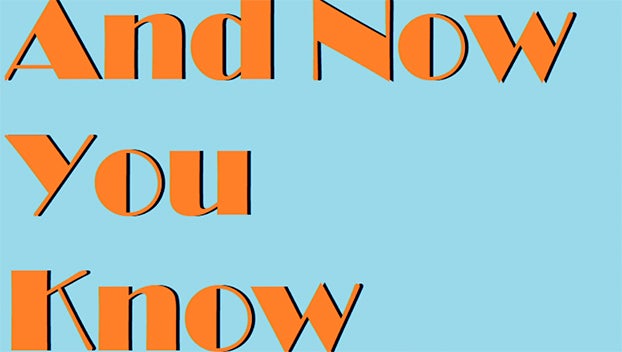Stop Stroke in its Tracks
Published 8:08 am Wednesday, December 14, 2016
Editorial by Mary W. Poole
If you thought you were having a stroke, what would you do?
- Call you doctor.
- Call our spouse or a friend to come get you.
- Lie down.
- Call for emergency medical assistance.
The correct answer: d. You have the greatest changes of surviving stroke and suffering the least amount of disability when you get immediate medical care. That is because doctors need to begin some treatments within three hours of the time you suffered the stroke.
The warning signs
To act promptly, you have got to know the following signs of stroke:
- Sudden numbness or weakness of the face, arm or leg, especially on one side of the body.
- Sudden confusion, trouble speaking or understanding.
- Sudden trouble seeing in one or both eyes.
- Sudden trouble walking, dizziness, loss of balance or coordination.
- Sudden, severe headache with no known cause.
Mini-stroke, major warning
Sometimes the symptoms may last only a few minutes. You may be experiencing a mini-stroke, or transient ischemic attack (TIA), which produces similar symptoms. But do not take these signs any less lightly: A mini-stroke can be a predictor of severe stroke and needs to be treated immediately.
The need for speed
Each year, about 700,000 Americans have strokes. More than 150,000 of them die. That makes stroke the third leading cause of death in the United States. An ischemic stroke, the most common type of stroke, occurs when a blockage stops blood flow to the brain. A hemorrhagic stroke is caused by a blood vessel that bursts or leaks in the brain. When oxygen and nutrients cannot get through, brain cells begin dying within minutes. That is why speedy action is needed. Doctors can treat ischemic strokes with clot-busting drugs that improve your chances of successful recovery. If you have suffered a hemorrhagic stroke, your doctor may choose surgery to prevent an aneurysm from bursting or bleeding again.
Anyone at any age can have a stroke, but you can fight stroke by being aware of your risk factors, which include:
- Age (75 percent of strokes occur in adults over 55)
- A previous stroke or TIA
- A family history of stroke or TIA
- Smoking
- Excess alcohol consumption
- Excess weight or obesity
- Diabetes
- High blood pressure
- Undesirable cholesterol levels
- Atrial fibrillation (a type of irregular heartbeat)
- Lack of exercise
Being informed and prepared can make a critical difference in how you survive a stroke. It pays to educate your loved ones so they can make the right decisions, too!
Mary W. Poole is Director Public Relations at Baptist Hospitals of Southeast Texas





